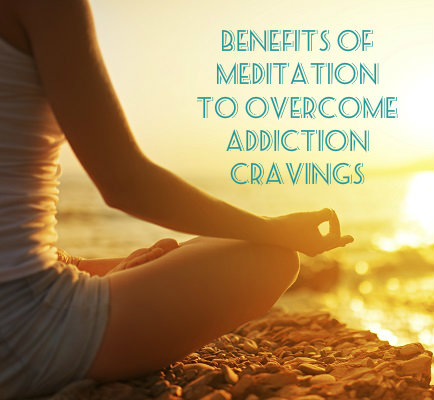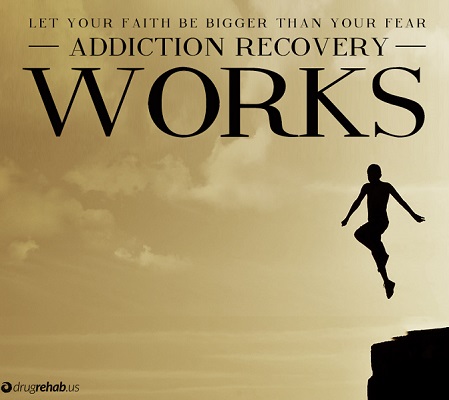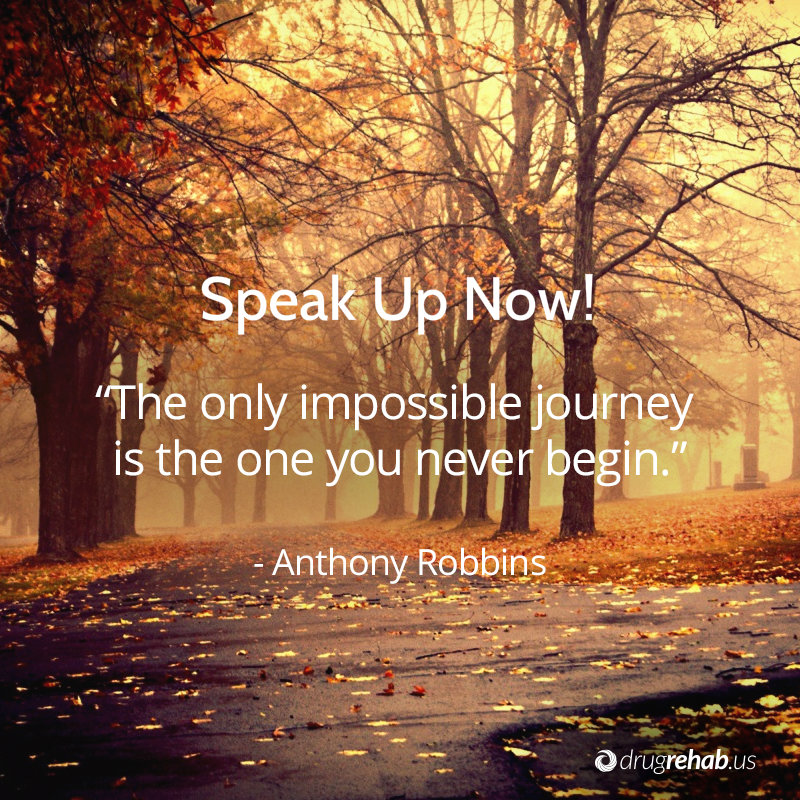24 Oct 2014
How A Pet Could Help The Addict In Your Life
If you have ever had a pet—a dog, cat, lizard or even just a goldfish, you know that they can help you feel calm, joyful, loved and needed. Caring for an animal and loving and being loved by one is powerful. Using animals in therapy sessions, or even just to calm patients’ nerves in a dentist’s office, has long been a tool in the arsenal of health care providers. With this in mind, consider getting a pet to help the recovering addict in your household. The responsibility of caring for an animal and the unconditional love it will provide could be greatly beneficial.
 Animal-Assisted Therapy
Animal-Assisted Therapy
To understand why having a pet could help the recovering addict you care about, it’s important to learn a little bit about how therapists have used animals to help patients. Patients with a range of illnesses and conditions can benefit from having an animal involved in therapy. This includes children who have suffered from abuse, people with mental health conditions, patients undergoing painful and stressful medical procedures, people facing the stress and fear of terminal illness and even addicts.
Research has uncovered what humans have long known: being around animals is good for us. Even for healthy people, animals make us feel happier and more relaxed. We even know from research that simply petting a dog can lower blood pressure dramatically. Being around and touching animals has also been shown to raise levels of a hormone called oxytocin, which makes us feel happier and more loving.
Bringing A Pet Home For A Recovering Addict
With the benefits of being around animals in mind, consider bringing a pet into your household if you are caring for a recovering addict. A dog or cat, or even a bird or fish, has the potential to bring joy, purpose and meaning back into the life of your loved one. You can choose the level of care and responsibility needed by selecting the right pet. A dog is a great choice if your loved one is active and capable of taking care of a dog’s many needs. If your loved one doesn’t seem ready for a dog, a cat or other pet could be a good choice.
If you decide bring a pet home, get your recovering addict involved every step of the way. Let her help in the decision-making and learn with her how to care for the new pet. Being a part of the process will give her a sense of responsibility, a new purpose and a greater sense of self-worth. The love that she gets in return will be a powerful motivator to stay clean and sober.
Pets Are A Responsibility
As you make the choice about getting a pet to help your loved one, keep in mind that pets are a responsibility. A pet needs a person to care for him and will depend on that person. If you are unsure whether your recovering addict is up for the task, be prepared to step in and care for the animal and all his needs. If you are not prepared to do this, you may not be ready to welcome home a pet.
Rescue Pets – Tools For Healing And Recovery
Animals are powerful tools for healing. To help the recovering addict in your household, consider rescuing a pet. Check out your local animal shelter to find a cat, dog or other animal that needs someone as much as your loved one needs to care for a pet. You may both be surprised at how much healing power comes in a small, furry package.
21 Oct 2014
Using Meditation To Combat Addiction Cravings?
More people these days are turning to alternatives in medicine and wellness. Many of these alternatives come from Eastern cultures. Addiction is one disease that can be treated successfully with a variety of techniques from traditional Western medicine, holistic practices, and Eastern philosophy and spirituality. If you are a recovering addict and you battle cravings, consider borrowing from the Eastern tradition. Meditation is an ancient practice with usefulness in modern times. Practicing medication can reduce your stress levels, make you more aware of your mind and body and help you resist the urge to relapse.
What Is Meditation?
 Meditation is a practice that people have been using for millennia but has only recently been recognized by modern medical practitioners and researchers. The original purpose of meditation was to connect with the spiritual and mystical life forces. Many people today use the practice to relax and relieve symptoms of stress.
Meditation is a practice that people have been using for millennia but has only recently been recognized by modern medical practitioners and researchers. The original purpose of meditation was to connect with the spiritual and mystical life forces. Many people today use the practice to relax and relieve symptoms of stress.
In meditation you focus your attention and your thoughts on the present moment. This is achieved by focusing on your breathing, an incantation or an image. You ignore and quiet all of the thoughts that normally flood your mind throughout the day and enter a state of deep relaxation.
The Benefits Of Meditation For Recovering Addicts
The immediate and general benefits of meditating are an overall sense of well-being, calmness and relaxation, as well as a release of stress. The effects carry on beyond the meditation exercise.
Physical Benefits
Medical research has shown that meditation can help to manage symptoms of illnesses including:
- heart disease
- asthma
- insomnia
- pain
- high blood pressure
- cancer and anxiety disorders
Emotional And Mental Benefits
In addition to the physical benefits, meditation is also known to produce positive emotional outcomes and this is where the exercise can really help you manage your drug or alcohol cravings. Meditating can help you gain perspective on difficult situations. If you have an intense craving, stop to meditate. It will help you realize that your cravings will pass and that you need not give into them.
Meditation also helps you to improve your sense of self-awareness. Another word for this is mindfulness. If you can become more aware of what your mind and body are telling you, you can better forestall your cravings. You may realize, for instance, that stress or worry about something at work is driving your craving. If you solve that problem, your craving will lessen.
Meditation is a powerful tool for stress management. Stress is a big trigger for relapse. If you can learn how to use tools, like meditation, to manage your stress, you will be more successful at resisting the urge to use again. In addition to stress management, meditating reduces all negative emotions. There are many negative feelings that can trigger a relapse: anxiety, depression, fear, loneliness. If you can reduce these through meditation, you can reduce your cravings.
Meditation is a practice that is open to anyone. It requires no special skills, no equipment and no instruction. Working with someone experienced in meditation is not a bad idea if you feel you need guidance, but it isn’t necessary. Meditation can be as simple as sitting comfortably in a quiet place and focusing on your breathing. Also realize that you will get more adept at meditating with time and practice. Don’t expect to be able to fully relax and block out external factors on your first try. Give it time.
Meditation is not a cure for addiction or for anything, but it is a useful tool. As an addict in recovery you need all the tools you can get to help you avoid a relapse. Cravings are powerful and intense, but meditation can help you fight them. Give it a try and see how much better you feel in general.
Discover The Benefits Of Holistic Drug Rehab
20 Oct 2014
How To Face Your Fears Of Being Sober
Admitting to having a problem with drinking or drugs and then getting help are big steps to take. Fear is what holds most people back. There are many fears associated with going to rehab or therapy for addiction. You may be eager to get sober, but afraid of failing. You might fear what your friends, family and coworkers will say and think about you.
Most of all you are probably afraid to be sober. After using drugs or alcohol to silence your voices, cope with troubling emotions or to self-medicate, the idea of being sober is terrifying.
Common Sobriety Fears
There are many reasons to fear getting sober. Your reasons may be personal, but you will likely recognize yourself in these common fears of being sober:
 I’ll never have fun again – For some addicts, substance abuse starts and ends with partying. How can you possibly go out with your friends and have a good time if you have to sip a coke all night long? This is a valid and reasonable fear. Your ideas about what is fun will need to change when you get sober.
I’ll never have fun again – For some addicts, substance abuse starts and ends with partying. How can you possibly go out with your friends and have a good time if you have to sip a coke all night long? This is a valid and reasonable fear. Your ideas about what is fun will need to change when you get sober.
- I won’t be able to cope – People abuse substances for a variety of reasons, but largely as a coping mechanism. Whether you drink or use drugs to suppress trauma, cope with social anxiety, deal with stress, or avoid the symptoms of a mental illness, sobriety will mean finding new coping mechanisms.
- I’ll have to feel – Drinking and drugs are good at helping you ignore your feelings of all kinds. You will have to face your feelings when you get sober. The good news is if you get professional help you will have caring people to guide you through the process of recognizing your emotions.
- I’ll probably fail and relapse – Fear of failing at sobriety is a major roadblock, but you have to realize that nearly all addicts relapse once or more. Stop seeing it as a failure and look at relapse as a hurdle to clear, and one that may trip you from time to time.
Tips On How To Get Over The Fear Of Sobriety
- Fear of sobriety is normal, but if you want to save your life and get out of the shadow of addiction you have to face it and get over it – Any fear can be conquered by first facing it. Think about what scares you and put it into writing. Knowing exactly what it is that scares you can help you better face it.
- Next, talk to someone else about it – Even if you only have one person in your life you trust enough with your feelings, that is enough. Talk to this person about wanting to get sober, but being afraid.
- Another powerful way to overcome a fear is to imagine the worst possible outcome and then compare it to what is most likely – You’ll find that your fears are usually worse than what reality suggests. You’re afraid that all your friends will walk away from you when you’re sober. Is that really likely though? Maybe a few will, but those that care about you will support you.
- Finally, take one small step toward facing your fear – Instead of diving head first into rehab, schedule one therapy session or go to one support group session. This small exposure to your fear will actually lessen it. Everything you fear is scarier in your imagination than in reality. Take baby steps toward getting sober and eventually you will realize that you have conquered your fear.
Discover How To Be Empowered Over The Shame Of Addiction – You Are Worth It…You Always Have Been – It’s Time Now To Realize That!
17 Oct 2014
The Benefits Of A Sober Living House
Sober living refers not just to being sober, but also to a safe house in which to live soon after receiving treatment for addiction. A sober living house was once called a halfway house—a halfway stop between rehab and being on your own again. The idea of a sober living house is that you live in a home that gives you some level of support and treatment for your addiction while letting you work toward greater independence. You live surrounded by others in the same situation and receive the benefits of mutual support. If you are getting treatment for addiction, consider the benefits of a stay in a sober living house.
What Is A Sober Living House?
 A sober living house is a sober environment in which recovering addicts live after receiving some type of intensive treatment. Patients may live in a sober house for up to a year. Most people come to stay in one after going through a 30- to 90-day rehab treatment program.
A sober living house is a sober environment in which recovering addicts live after receiving some type of intensive treatment. Patients may live in a sober house for up to a year. Most people come to stay in one after going through a 30- to 90-day rehab treatment program.
The sober living house provides an environment that is completely free of drugs and alcohol. Most do not include formal treatment, but there may be a therapist on call or regular 12-Step meetings. The level of structure varies, but some sober living houses include skill-building lessons, such as learning to balance a budget, looking for a job and maintaining good social skills.
The Social Support Of Sober Living
The drug- and alcohol-free environment is an obvious benefit of sober living. Rules in these houses are strict, which means that residents can count on not being near drugs or alcohol. A less obvious benefit is that of social support. Research tells us that social factors are a crucial element of successful addiction recovery. Recovering addicts that have a strong social support system are more likely to be successful over the long term.
In a sober living house you have a built-in social network. Your roommates are also in recovery and you have the opportunity to support and help each other stay sober. Many houses include support group meetings, but even without them, you are surrounded by people who have the same goals and needs that you do. Those who are further along in recovery often support new residents.
Sober Living Provides A Transition Into The Real World
Going directly from rehab to living back at home, going to work and socializing with family and old friends can be a rocky transition to make. It can be abrupt and unforgiving. One day you are fully supported in a safe environment, and the next you are expected to go back to normal life, except without abusing substances. This is where many addicts end up relapsing.
A great benefit of a sober living house is that you get a smoother transition back into the real world. The sober living house is less structured and less secure than your rehab facility, but it still provides some safeguards that you wouldn’t have at home. In a sober living house you can slowly learn how to re-enter society as a sober person. You can take the time to develop new skills and to find out who you are sober.
A sober living house is a great place to spend your early recovery. The bumpy road from rehab to home again can be made much smoother by the safety and security you can find in one of these homes. If you are recovering from an addiction, consider spending some time in a sober living facility.
29 Sep 2014
How To Use Activities To Help Overcome Addiction
It may sound too simple, and nothing can replace a good addiction treatment program, but engaging in new activities and hobbies can be a powerful way to help overcome addiction. To truly get sober and into successful recovery from your addiction, you need high-quality care from experienced professionals, support from friends and loved ones, and hard work on your part. But there are also tools and resources to help support your recovery and these can make all the difference. Consider getting involved in a new activity to aid your sobriety.
Avoiding Relapse
Recovering from addiction means facing a long-term battle with urges to use again. No matter how far you get in your sobriety, there will always be a little voice telling you to turn back to substances. It may not be there every day, but it will be there at your low points and when you feel your worst. There are many professional and useful suggestions for how to resist these urges: know your triggers and avoid them, cut ties with old friends, lean on sober friends, keep up with therapy and stay healthy. These are great ideas, but add one more: get involved with new activities.
Hobbies For Recovery
 Hobby is a quaint and old-fashioned word, but it refers to doing something, anything, that is meaningful to you. It could be something you used to do, but lost sight of during your substance abuse period. Or it could be something entirely new, something you always wanted to try, but never got around to doing.
Hobby is a quaint and old-fashioned word, but it refers to doing something, anything, that is meaningful to you. It could be something you used to do, but lost sight of during your substance abuse period. Or it could be something entirely new, something you always wanted to try, but never got around to doing.
As an addict you turned to drugs or alcohol as a source of meaning in your life. Maybe it filled a void you always felt you had. Maybe it helped you to suppress trauma that has been chasing you since childhood. Maybe you were lonely and being high or drunk helped you forget that fact. Meaningful activities can play the same role, but in a healthy and beneficial way. They bring meaning to your life and help you connect with others. When you have something to which you devote your time and energy, you leave less room for the drugs and alcohol of your past.
Getting Involved
To get involved in a new activity means you need to figure out what you want to do. Reflect before you get started and think about the kinds of things that have always interested you. Is it music? Art? Working with animals? Helping others? Tap into what moves you and then start trying things. You may need to try a few new hobbies or activities before you find the one, but there’s nothing wrong with that. You might even make some new friends along the way. Look to your community’s ongoing education programs, a local community college, your church or volunteer organizations to find the activities you want to try and then dive in.
Beware Of Substitute Addictions
As you begin your new adventure in sobriety, be aware of the possibility of a substitute addiction. As an addict you have a natural tendency to go overboard and become obsessive. Watch yourself for signs that you are getting addicted to your new activity. Be aware of how much time you spend on it and if you are neglecting other responsibilities. Your new hobbies should help you, not become a substitute for drugs and alcohol.
As long as you have the support and professional care you need for your addiction, adding a hobby or new activity can only help you. The meaning and fulfillment you find could be just what you need to help you down the path to long-term sobriety.
24 Sep 2014
How To Come Out As A Recovering Alcoholic
Being an alcoholic means living with a lifelong disease. If you have gone through rehab or any other form of treatment and are now in recovery you have taken huge steps to get back control of your life and to treat your disease. Remember that addiction is chronic and that you need to treat it for the rest of your life. This means that it will always be a health concern for you. No matter how long you have been sober, a relapse is always possible.
With something so big going on in your life, it doesn’t make sense to keep it a secret from your friends and family members. So how do you come out and tell people? It will be scary at first, but know that your loved ones will support you.
Steps To Come Out And Tell People You’re A Recovering Alcoholic
Start slowly and take this advice:
 Start With A Support Group – The people who will be most sympathetic to your alcoholism are those who also struggle with the disease of addiction. Joining a support group is a great tool for maintaining your sobriety and a useful way to practice talking about your addiction and recovery. The members of your support group will be supportive. No one there will reject you or ridicule you. Tell your story here and you will start to feel more comfortable opening up to others.
Start With A Support Group – The people who will be most sympathetic to your alcoholism are those who also struggle with the disease of addiction. Joining a support group is a great tool for maintaining your sobriety and a useful way to practice talking about your addiction and recovery. The members of your support group will be supportive. No one there will reject you or ridicule you. Tell your story here and you will start to feel more comfortable opening up to others.
- Tell Your Sober Loved Ones Next – The sad fact is that the friends with whom you used to drink may not support your new sobriety. They may take your admission of alcoholism as an accusation that they too have a problem. This comes from a defensive standpoint and denial on their parts, but for you it can feel hurtful and devastating. You can confront these friends eventually, but start with your sober loved ones. They are more likely to be loving and supportive of the changes you’ve made in your life.
- Arm Yourself With Information – When you talk to your loved ones about being in recovery, be prepared to educate them about the disease of alcoholism. Most people still have no idea what addiction really is, that it is an illness. Talk to them about your personal experiences and why you felt you had to stop drinking, but also about alcoholism in general. Help them to understand the disease and they will be better able to support you.
- Tell Your Friends And Family What You Need – It is also important that you provide your loved ones with details about what you need from them. It may be confusing for them. If you need them not to drink around you, make that clear. If you can’t meet up in a bar, make sure they know that. They will want to help, but will need to know how.
- Be Patient And Give Your Loved Ones Space – In spite of your best efforts, some of your loved ones may not take the news well. Be prepared to give them space if needed. The bad reaction will probably be due to shock. Provide them with resources about alcoholism and give them time and space. They will come back to you when they’re ready.
Telling people that you are an alcoholic in recovery is never easy. It is important, though, because your disease is a part of who you are. When you take the time to educate the ones you love and tell them what you need for support, you may be surprised at just how much support you receive.
If You Need Help With Your Addiction Recovery – Call Us Now – We Are Here Just For You!
19 Sep 2014
Speaking Up About Addiction
Addiction is often a silent disease. While no one is ashamed to talk about having arthritis or high blood pressure, the disease of addiction has long carried a terrible stigma. Those struggling with addiction are too often looked upon, by others as well as themselves, as weak, morally inferior and lacking in willpower. It is difficult to speak up and speak out about the challenges of this disease, but when we do, we can make real, positive changes. Only with awareness and recognition will more addicts get the help they need, while future addictions are prevented.
The Power Of Awareness
 The expression goes that knowledge is power and it carries a great amount of truth. When something like addiction remains shadowed and hidden, ignorance is allowed to grow. When someone knows nothing about addiction, the lies and misinformation seep in along with assumptions and prejudices. Someone who is ignorant about addiction may not be aware that a friend, coworker, or even a family member is struggling with the disease.
The expression goes that knowledge is power and it carries a great amount of truth. When something like addiction remains shadowed and hidden, ignorance is allowed to grow. When someone knows nothing about addiction, the lies and misinformation seep in along with assumptions and prejudices. Someone who is ignorant about addiction may not be aware that a friend, coworker, or even a family member is struggling with the disease.
Raising awareness about addiction can be powerful. Spreading the word about how damaging this disease can be is a great way to prevent people from abusing substances in the first place. Prevention is the best way to help spare people from the pain and suffering caused by addiction. Raising awareness can even help motivate other people to help make a difference. Even for those who never had an interest in drug use or drinking, learning more about addiction can inspire anyone to get involved with helping others.
Awareness can also make big changes over the long term. It might feel as if one person, or one small group, speaking up and talking about addiction makes little difference. The truth is that it can have a snowball effect. Your efforts to reach others inspire the next person, and the next person. When enough people start speaking up, lawmakers start to listen, as do organizations with the means to fund research and treatment. The act of speaking up, even by one person, can be powerful.
Sharing Stories Of Addiction
If you have been impacted by addiction, whether your own or someone else’s, sharing that story is one important way to speak out and raise awareness. The more we speak about addiction and the more we hear about it, the more it loses its mystery and stigma.
Several organizations encourage and host events that allow you to get your story out there:
- The National Council on Alcoholism and Drug Dependence has named September National Alcohol and Drug Addiction Recovery Month. This event encourages people to learn about addiction and recovery as well as treatment options.
- The Substance Abuse and Mental Health Services Administration supports October as National Substance Abuse Prevention Month and provides ideas and events for people to share their stories and to learn more about addiction.
- The U.S. Army supports veterans battling drug addiction by encouraging everyone to learn more about addiction, treatment and recovery. It also advocates for celebrating the successes of those who are in recovery and sober.
When it comes to a disease laden with stigma, the only way to banish the shame and ignorance is to speak up. If you have battled addiction, if you have seen a loved one laid low by this disease, or if you simply care about the issue, speak up, spread awareness and help others learn more about the disease of addiction!
Read Our Other Empowering And Inspirational Posts
Overcoming Addiction Is Worth It & So Are You! – Let Us Help You Take That First Step – Call Us Now!
17 Sep 2014
How To Get The Best Addiction Care
When you finally make that important choice to get help for your addiction you are ready to start healing. Does this mean you should run straight to the first rehab program you find and dive in without thinking or planning? You might be tempted to just get it over with and get started, but if you want to make the most of your experience, and get the best care possible, take some time to plan. With appropriate steps and a little research, you can make sure you are getting the best help possible.
What To Look For In Treatment Programs
 The first thing to consider when you need help for your addiction is getting all the information. You may get lucky if you go with the first program you hear about. But you are more likely to have a positive experience if you take the time to research your options and to select the program that makes the most sense for your needs.
The first thing to consider when you need help for your addiction is getting all the information. You may get lucky if you go with the first program you hear about. But you are more likely to have a positive experience if you take the time to research your options and to select the program that makes the most sense for your needs.
You also want to look for high-quality programs. Look for accreditation and licensing. Ask about treatment methods and whether those the program uses are backed by evidence. Finally, make sure any program you choose has an aftercare program. This is crucial to long-term success.
Covering the basics is important. Next you need to consider variations in programs and which type best suits you. There are residential programs, which are a good choice if you think you need to be monitored around the clock.
You may also choose an intensive outpatient program. This allows you to stay at home and may work for you if you have a strong support system living with you. Outpatient programs are also a good option if you need to keep going to work every day. You should be able to find a program that fits in around your work hours. Whichever type of program you choose, make sure that you will receive a treatment plan tailored to your specific needs.
Make The Most Of Your Rehab Experience
Once you have entered your rehab facility or outpatient program, the real work begins. You now have an important opportunity to work toward sobriety that can last for the rest of your life. To get the best care, make the most of your experience. This means starting with a positive attitude. This is a difficult period of your life, but your attitude can make all the difference. While maintaining a positive attitude is important, you should also make sure your expectations are realistic and your goals attainable. Don’t go into treatment thinking you will come out cured. That is not the point of rehab.
Being in rehab can be a big adjustment. You will have rules and boundaries and make sure you follow them. They are in place for your safety and that of your peers. Follow the rules with a good attitude. As you go through counseling and group support, remember to remain open. Be open to the experience and to hearing what others have to say. If you remain closed off because of embarrassment or shame, you will not get the most out of your sessions.
Finally, cultivate persistence. Making it through rehab or outpatient care requires strength and patience. Getting sober and staying sober aren’t easy tasks. You will face challenges every day for the rest of your life. Never give up, even if you sometimes slide backwards. Persist in the face of your addiction and find the strength to keep going while in rehab and when you have made it to the other side.
Choose The Right Rehab For Yourself Or A Loved One


